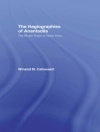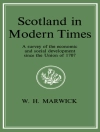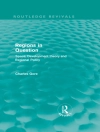Nanotechnology is essential in the development of advanced technologies for medicine and healthcare. Advances depend on the ability to study these materials and nano-biotechnologies using advanced analytical techniques. Providing a comprehensive overview of analytical techniques for applications in biomedical nanotechnology at both the fundamental and applied level, this book provides a broad perspective of the development of analytical methods involved in materials science and electronics. It highlights the fundamentals and systematic developments of techniques to achieve better characterisation, rapid diagnostics, cost-effective and user-friendly approaches, and state-of-art methodologies for personalised health management, and explains how this fundamental knowledge can be translated into applications in nano-enabled biomedical research. The multidisciplinary readership includes chemists, biologists, physicists, materials scientists, engineers and information technologists.
Key Features
- Provides a comprehensive overview of analytical techniques for applications in biomedical nanotechnology at both the fundamental and applied level
- Explains how fundamental knowledge of the techniques can be translated to applications in nano-enabled biomedical research
- Covers state-of-art analytical techniques for biomedical nanotechnology
- Includes the prospects and challenges with each technique, including potential solutions
- Provides a multidisciplinary view of interest to chemists, biologists, physicists, materials scientists, engineers and information technologists
Table des matières
1 Emergence of analytical techniques
2 Electrochemical techniques for biomedical nanotechnology
3 UV–visible spectroscopy in biomedical nanotechnology
4 FTIR spectroscopy and microscopy in biomedical nanotechnology
5 Raman spectroscopy and microscopy in biomedical nanotechnology
6 Quartz crystal microbalance for biomedical nanotechnology
7 Application of nuclear magnetic resonance spectroscopy in biomedical nanotechnology
8 Mass spectroscopy in biomedical nanotechnology
9 Magnetic measurement systems for biomedical nanotechnology
10 Application of x-ray diffraction for biomedical nanotechnologies: current insights and perspectives
11 Scanning electron microscopy for biomedical nanotechnology
12 Transmission electron microscopy for biomedical nanotechnology
13 Energy dispersive spectroscopy for biomedical nanotechnology
14 Atomic force microscopy for biomedical nanotechnology
15 Microfluidics system for biomedical nanotechnology
16 Dynamic light scattering (DLS) particle size analysis for biomedical nanotechnology
17 Zeta potential measurements and analysis for biomedical nanotechnology
18 Electron paramagnetic (spin) resonance spectroscopy for biomedical nanotechnology
19 X-ray photoelectron spectroscopy for biomedical applications
20 AI and IOT for biomedical smart applications
21 Summary and aspects of techniques for biotechnology report
A propos de l’auteur
Ajeet Kaushik is an assistant professor of Chemistry at the Department of Environmental Engineering of Florida Polytechnic University. He has over 15 years of experience in exploring analytical techniques for the characterisation of nanostructures, bio/chemical sensors fabrication confirmation, and nanomedicine optimization. Prior to joining Florida Polytechnic University in 2019, he worked as a faculty member at the Medical College of Florida International University.
Yogendra Mishra is a professor and leader of Smart Materials at University of Southern Denmark. He was an Alexander von Humboldt Fellow and later a Group Leader at Kiel University, Germany, from 2009 to 2019. He joined University of Southern Denmark as a professor in 2019. He is known world-wide for tetrapod-based 3D materials engineering and translational materials-based research activities.
Sesha Srinivasan is an assistant professor of Engineering Physics at Florida Polytechnic University. He has more than two decades of research and project management experience with expertise in the analytical characterization and synthesis of novel materials for emerging applications in hydrogen storage, catalysis, thermochemical and thermal energy, thermochromic coatings, advanced oxidation and biofuel generation. Srinivasan was a Postdoc (2002-2004) at the University of Hawaii, Research Assistant Professor (2004-2009) at the University of South Florida, and on the Faculty of Physics (2009-2014) at Tuskegee University.












